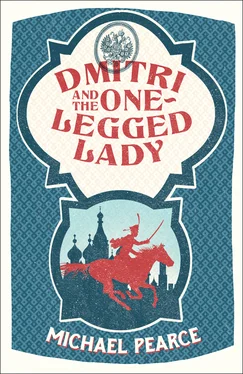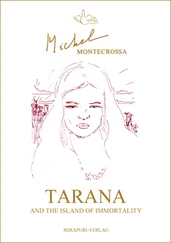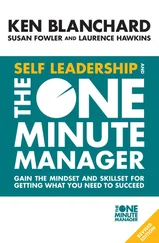‘Sugar?’ said the Father Superior.
‘Lemon,’ said Volkov.
‘Jam,’ said Dmitri.
The Father Superior brought the glasses back to the table.
‘The peasants, then,’ said Vokov, ‘are unusually pious in your area?’
‘Pious?’ said the Father Superior, startled. ‘No, I don’t think so.’
‘And yet they riot about an icon?’
‘I wouldn’t say riot, exactly.’
‘What would you say?’
‘I would call it an expression of concern. Which got a little out of hand.’
‘Out of hand. Yes. And why was that, do you think? Why were they so concerned?’
‘Well, the Icon was very dear to them –’
‘Aren’t all icons dear to them? What is so special about this one?’
‘Its associations, I suppose.’
‘Ah, yes,’ said Volkov, ‘its associations.’
He swirled the lemon round in his glass and glanced towards the samovar. It was an old one, not made of metal as most of the new ones were, but of some special kind of china, at least on the outside, which was covered with little blue tiles.
‘And what are its associations?’
‘Well, it’s associated with the relief of famine. At any rate, up in Tula, where it comes from.’
‘Ah, yes,’ said Volkov, ‘Tula.’
‘It’s quite an interesting story, in fact. It begins in the last century with a lady conspicuous for her good works. Among them was the relief of famine. She had the habit, whenever there was a famine, of driving around the countryside distributing food. Well, you know how these things get magnified in the popular mind. After her death it was claimed that she had performed miracles. You know, turning stones into bread, or if not that, bad wheat into good. And there was sufficient authentication for the miracles for the Church to agree, after her death, to an icon being commissioned in her name. It was paid for by public subscription.’
‘Public subscription?’
‘Yes. Unusual, that, I know. But she was very popular, you see. And some of that popularity rubbed off on the Icon. Whenever there was famine in the area after that, the Icon was taken out and carried through the fields.’
‘Why?’ said Volkov.
The Father Superior looked at him in surprise.
‘As a focus for their prayers. It was believed that in some way she was able to mediate for them. We are talking of the popular mind here. There was some confusion between the Icon and the original lady. Of course, from the Orthodox point of view –’
‘Ah, yes,’ said Volkov, ‘the Orthodox point of view.’
‘– all this is a little suspect. Theologically, that is. But in rural areas –’
‘And was it a focus for anything else?’ asked Volkov.
‘Anything else?’ said the Father Superior, staring.
‘There was always a lot of peasant unrest around Tula.’
‘I don’t see –’
‘Especially in time of famine. You say that the Icon was carried round the villages?’
‘Well, yes, but –’
‘Which rebelled at that time.’
‘Yes, but –’
‘This is just an icon!’ said Dmitri.
‘It is not what it is ,’ said Volkov patiently, ‘but what it means. In the Corps of Gendarmes we learn to look behind things.’
They stood for some time in the Chapel watching the pilgrims coming in. They came in a steady stream. As one group was going out, another would be coming in. Each group would go up to the iconostasis, genuflect and stand for a moment, heads bowed, before an icon. Often, then, they would raise their heads and gaze at the icon, sometimes for several minutes, as if rapt.
‘It is good to see them accepting the disciplines of the Holy Church,’ said Volkov.
‘Well, yes,’ said the Father Superior, pleased.
‘On the other hand it is worrying.’
‘Worrying?’ said the Father Superior.
‘To see how much the icons mean to them.’
He was looking at the large space that had been occupied by the One-Legged Lady. Many of the pilgrims went straight up to it and behaved as if the icon was still there. They bent their heads, their lips moved in prayer and often they would gaze as if they could see it. Some even kissed the ground in front of it.
They went out into the courtyard. It was packed with pilgrims. As they came through the gates they divided into several streams. One headed straight for the Chapel, another, carrying packs, made for the dormitory. Yet another went to the kitchens.
‘Where do they all come from?’ asked Volkov.
‘Oh, everywhere,’ said the Father Superior. ‘And not just the province, either.’
‘Where do you come from, friend?’
Volkov asked one of the pilgrims, a tall, bearded, wasted man.
‘Tula, brother,’ said the man.
‘Ah, Tula?’ said Volkov. ‘And why have you come down here?’
‘To pray, brother. And to look for succour.’
‘Succour?’
‘It’s been a bad year up there. The crops have failed again –’
‘And you, friend?’ he asked another man. ‘Where do you come from?’
‘Galich. It’s near Tula –’
Dmitri detached himself and started making his way across the yard to the gate-house. On his way he passed a group of men squatting down, oblivious to the snow, their backs against a wall, talking. Among them was the big peasant who had accosted the Father Superior on Dmitri’s first visit. The man looked up and saw him.
‘Still here, then?’ said Dmitri.
‘Well, there’s not much point in going back to Tula, is there? With me away, what food there is will go further.’
‘They’ll miss you, Ivan,’ said one of the men squatting beside him.
‘Do you think I don’t know that? But at least if I’m here there’s a chance I could do something. Suppose the Old Lady turns up? I’d be able to get on to her right away.’
‘There’ll be plenty of others doing that.’
‘Yes, but I can’t just sit at home doing nothing. I’m not made like that. I can’t just sit there watching them fade away before my eyes!’
‘You’ve got to practise patience, brother. God will provide.’
‘Yes, but He’s not provided yet, has He? And if He doesn’t start doing it soon, it’s going to be too late. Now, what I reckon is this: He’s a loving God, isn’t He, and if He knew about it, He’d do something about it. So it stands to reason He can’t have heard about it, and that’s very understandable because He’s got the whole world to think about and it’s easy to miss a few corners. But, you see, that’s just where the Old Lady comes in. She’d be there, knock-knock-knocking on the door, nagging away all the time, just like my old woman, and in the end He’d just have to hear, wouldn’t He? And what I reckon is,’ concluded the big peasant, ‘that’s why they’ve taken her away.’
‘You’ve lost me, Ivan,’ said someone beside him, who had been listening hard. ‘If she’s the one who could get through to Him, why would they want to take her away?’
‘Because they don’t want her to get through to Him.’
The whole group was listening.
‘Why wouldn’t they want that, Ivan?’
‘Because they’re mean bastards, that’s why. And because this way they’ve got us where they want us: on our back with their thumbs on our wind-pipe!’
‘They’re not that bloody mean, are they?’
‘They bloody are!’
‘I don’t reckon you ought to talk like that, Ivan,’ said someone uneasily, seeing the blue tunic and while gloves coming across the yard.
‘I’m not afraid of him!’ said Ivan.
‘No,’ said someone who evidently knew the family, ‘but you are afraid of Agafa, aren’t you, and she’ll be up your backside if she hears you’ve got yourself arrested just when she’s sick and needs you!’
Читать дальше












